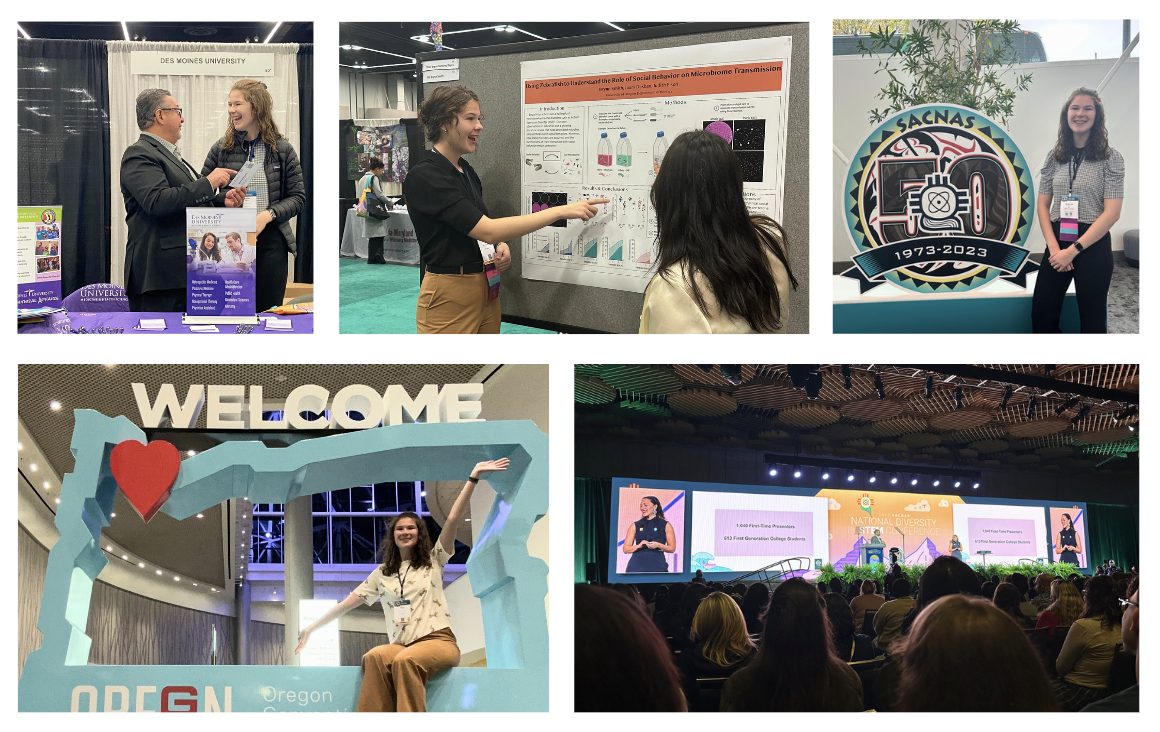Research & CV
Microbiome Transmission And it's effects on Social Deficit Disorders

Sacnas
NDiSTEM Conference 2023
In October 2023 I had the pleasure of attending the SACNAS, NDiSTEM (National Diversity in STEM) Conference after being selected as an undergraduate presenter. I made and presented my first ever poster on the research I had been conducting since the Fall of 2022 in the Eisen Lab at University of Oregon. The program of the conference featured a powwow, inspirational panels, and opportunities to connect individuals with mentors who not only shared their backgrounds but also expressed a genuine willingness to support them. I had the privilege of attending numerous of these panels that not only contributed to my professional growth but also provided valuable networking opportunities with like-minded and accomplished individuals. These interactions broadened my understanding of adversity as I listened to the experiences of others in the STEM community. The conference equipped me with the knowledge and tools to better support and advocate for the BIPOC population, both as an ally and as a peer in various STEM fields.
Additionally, I had the chance to explore 500+ exhibitors who participated in the conference, including 24+ esteemed medical schools. Their presence allowed me to learn about the diversity of program structures, the rigor of residency match rates, and the distinction between competitive and cooperative learning environments within medical education.